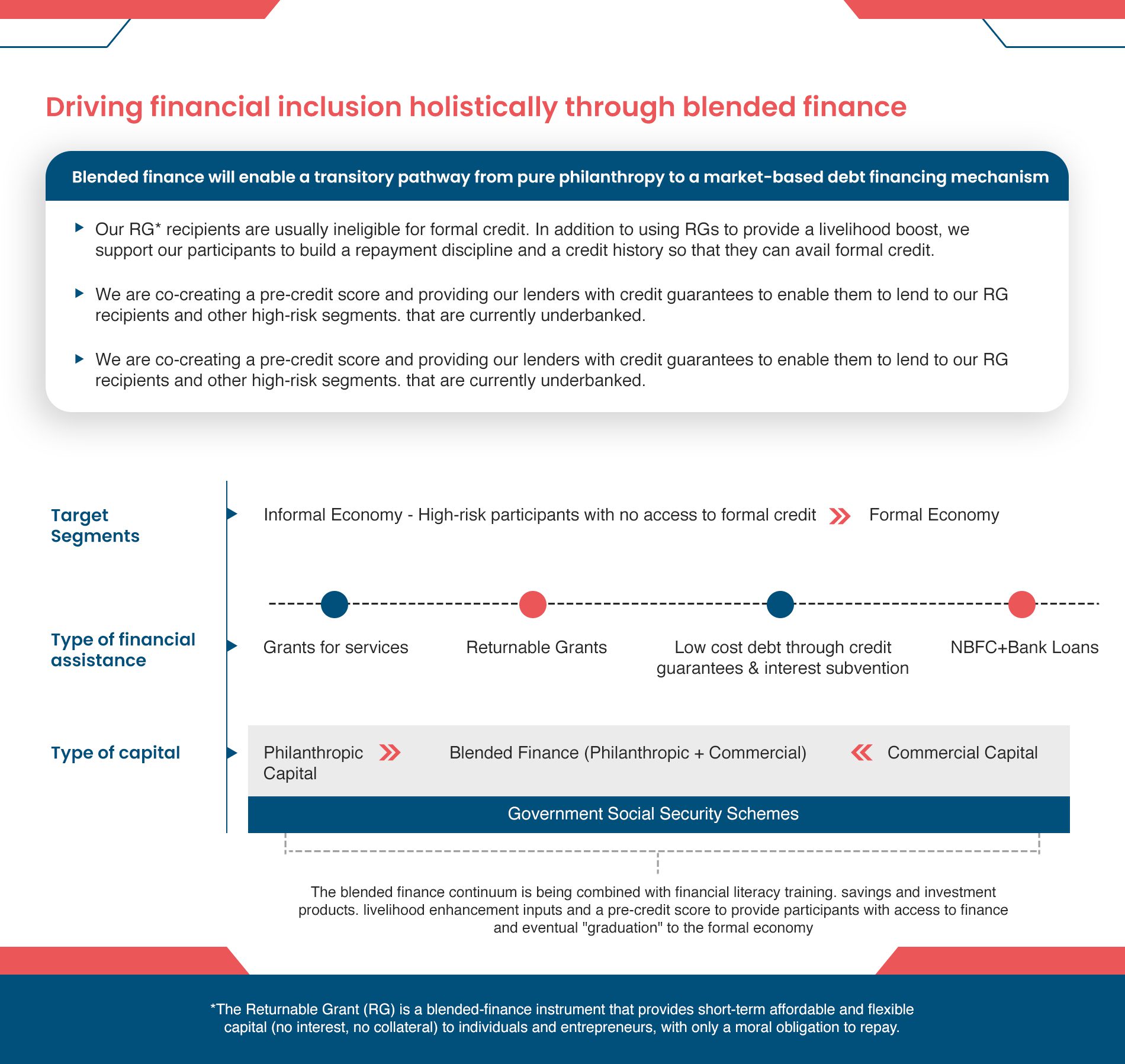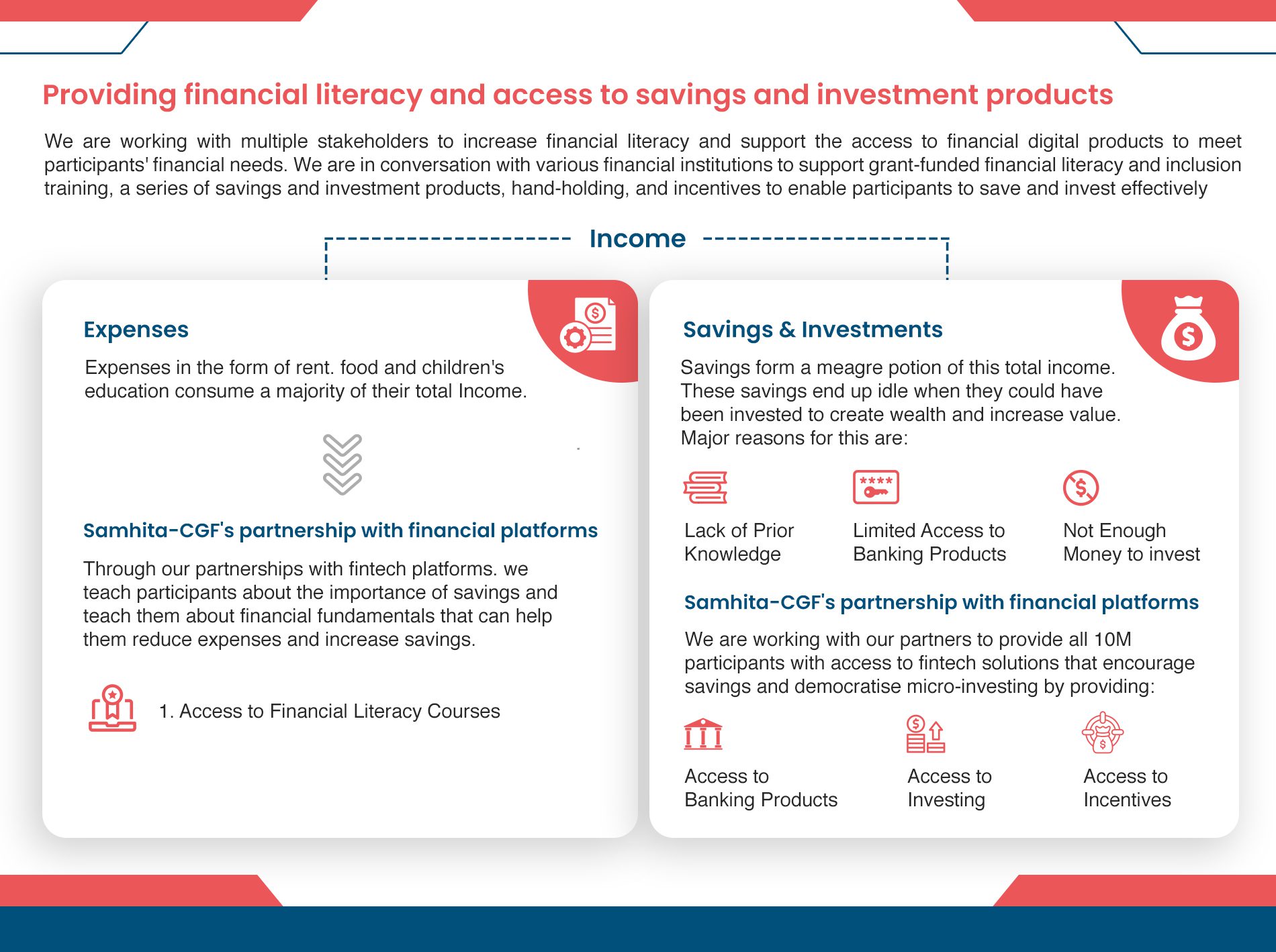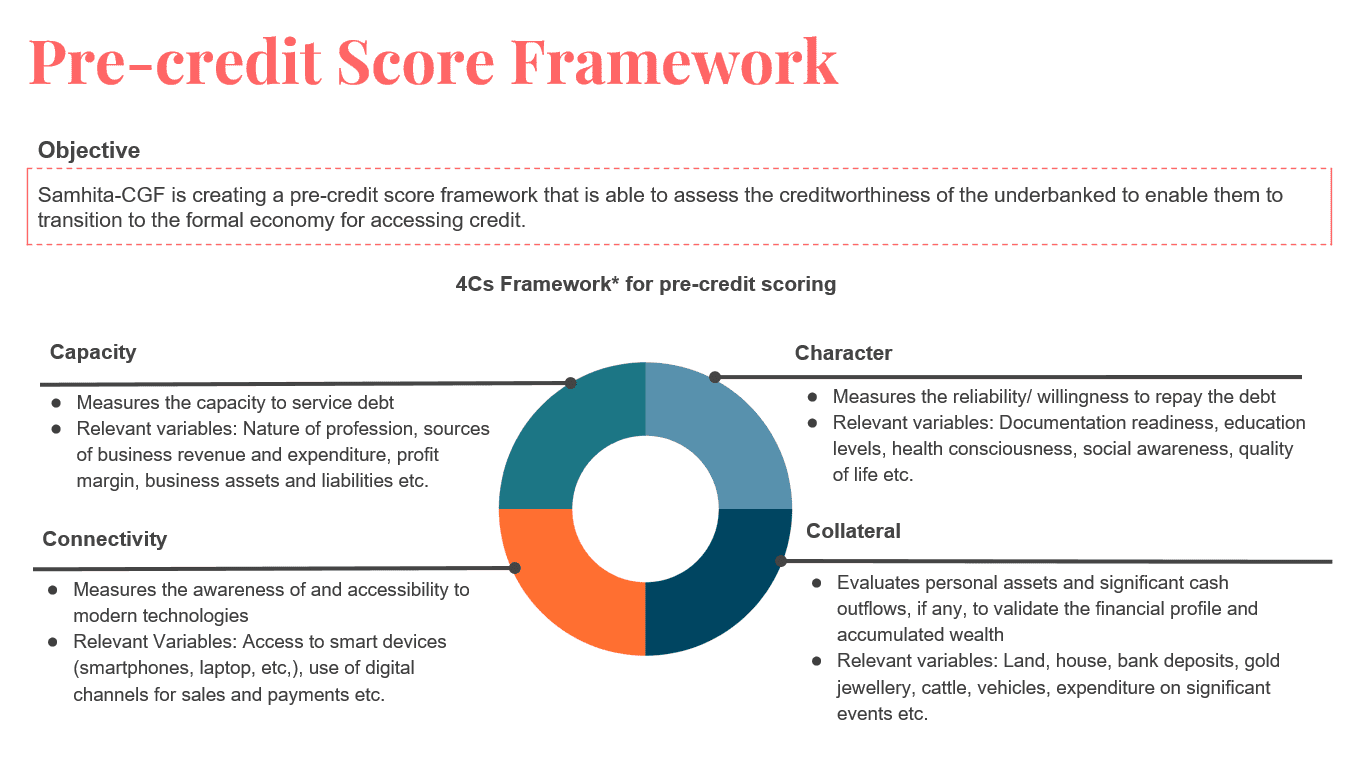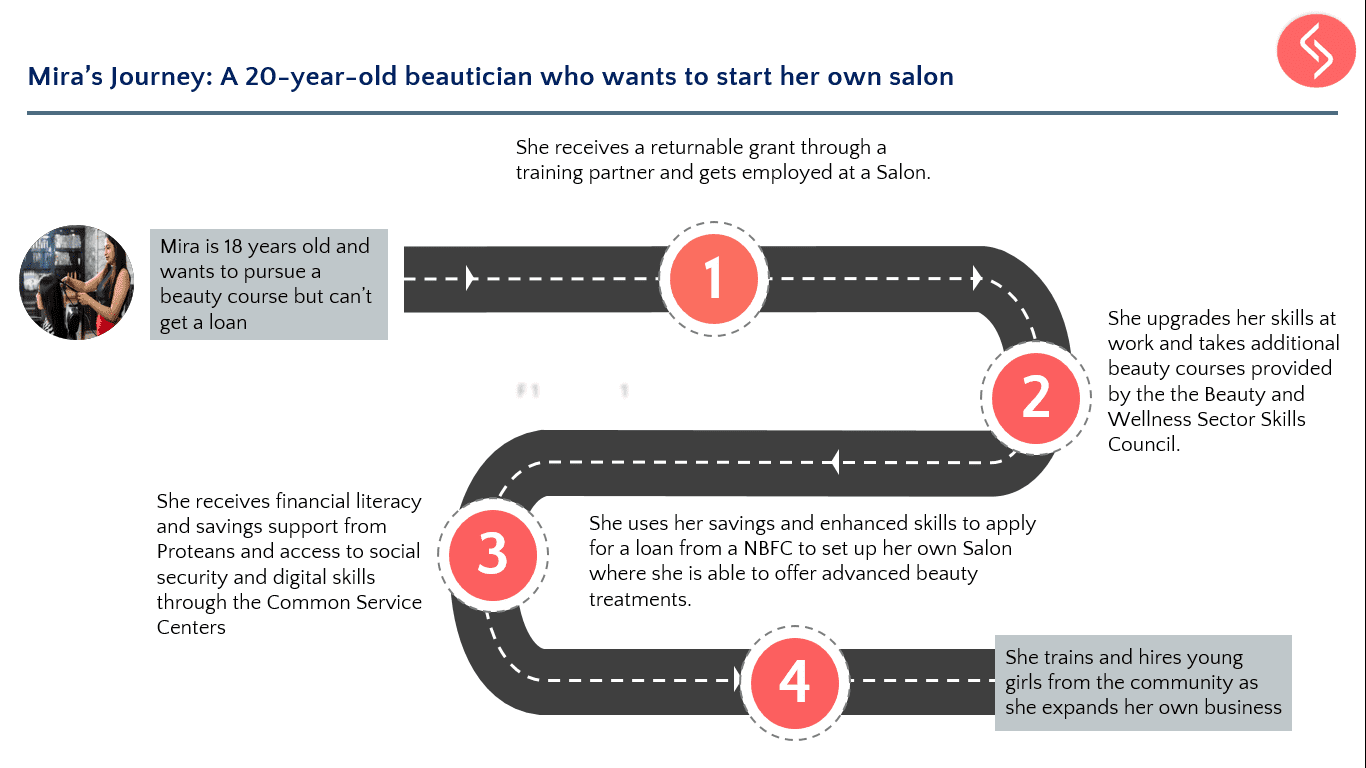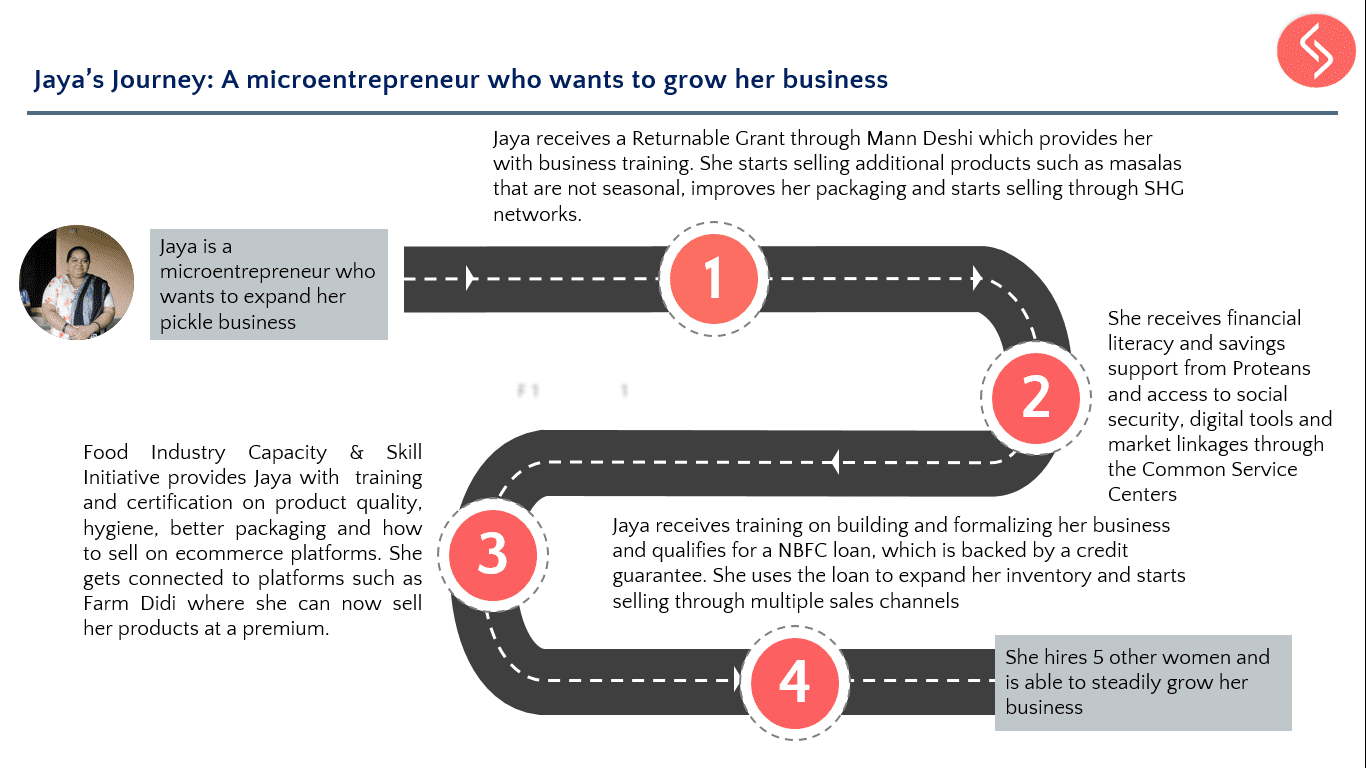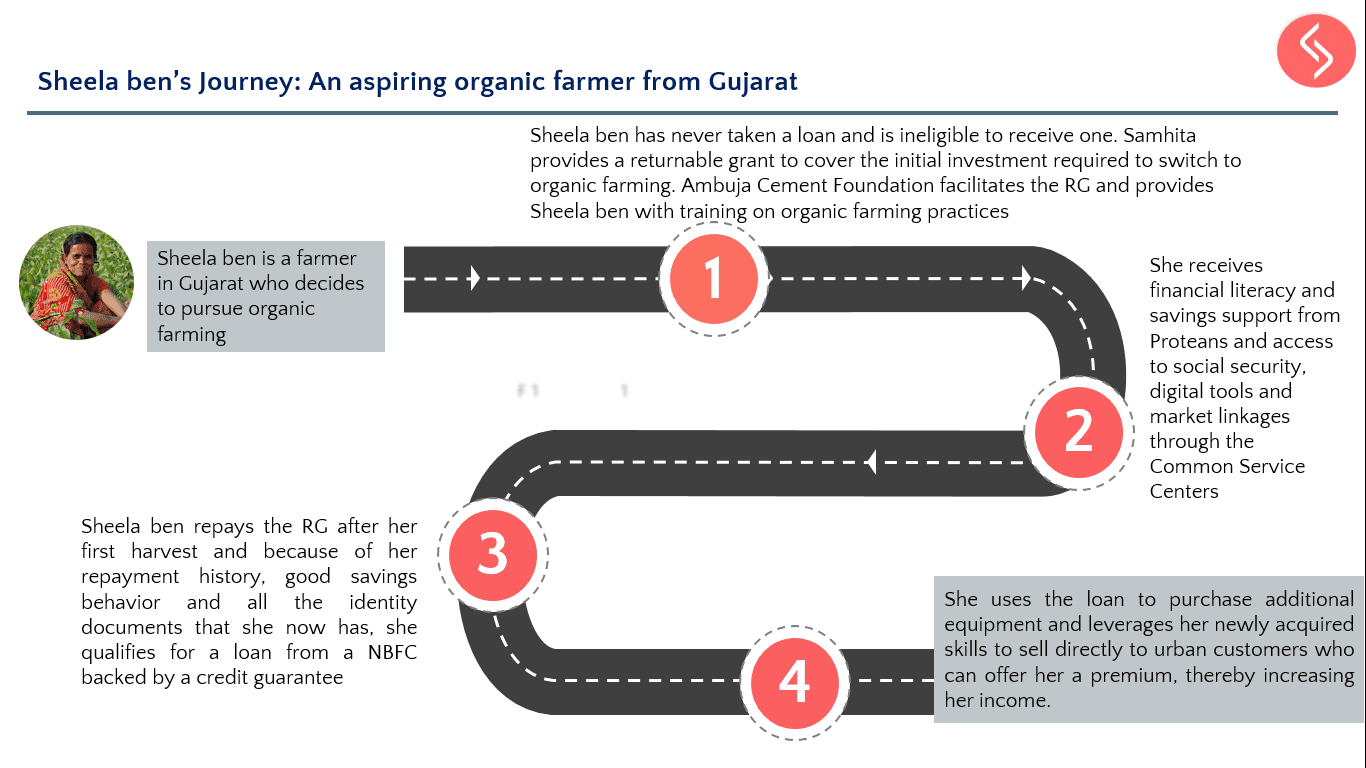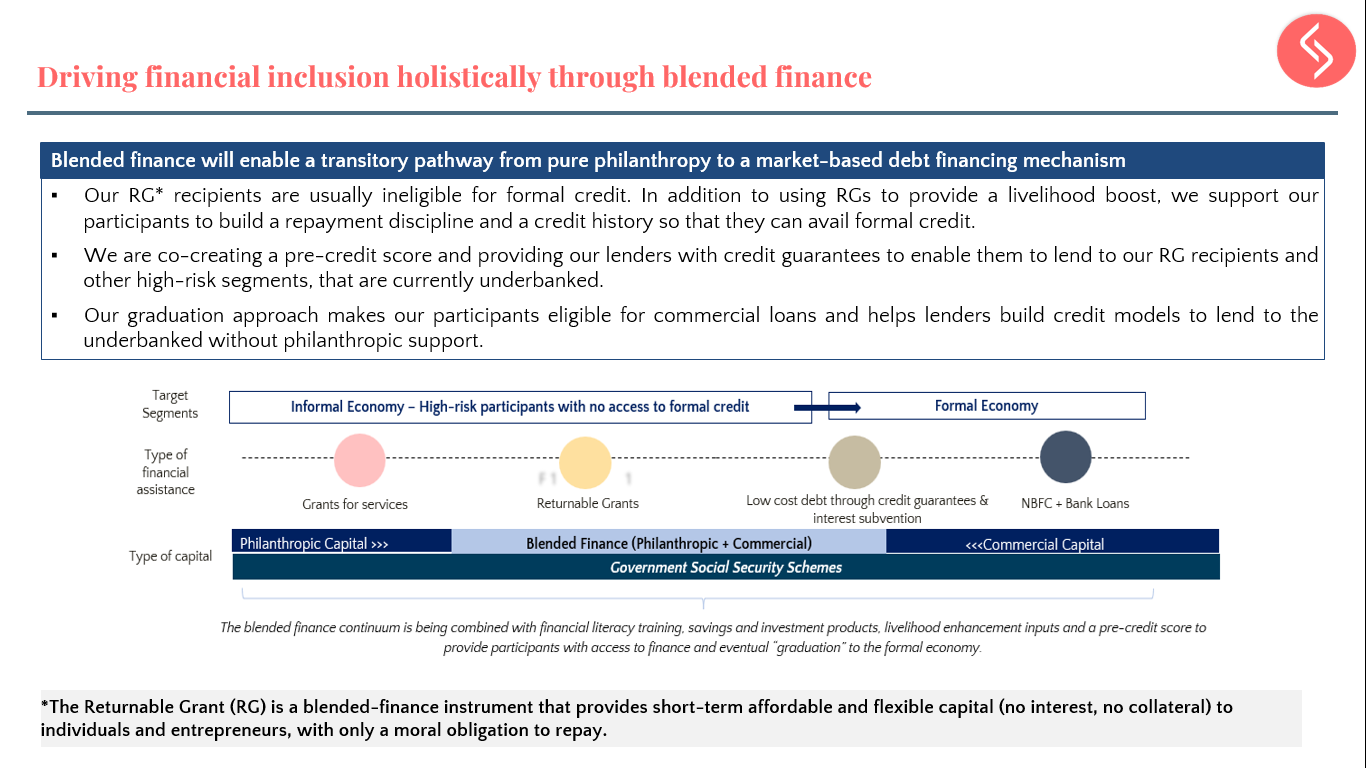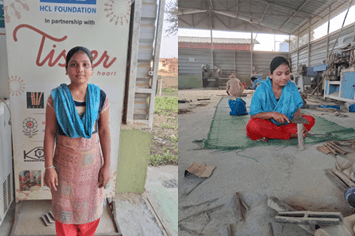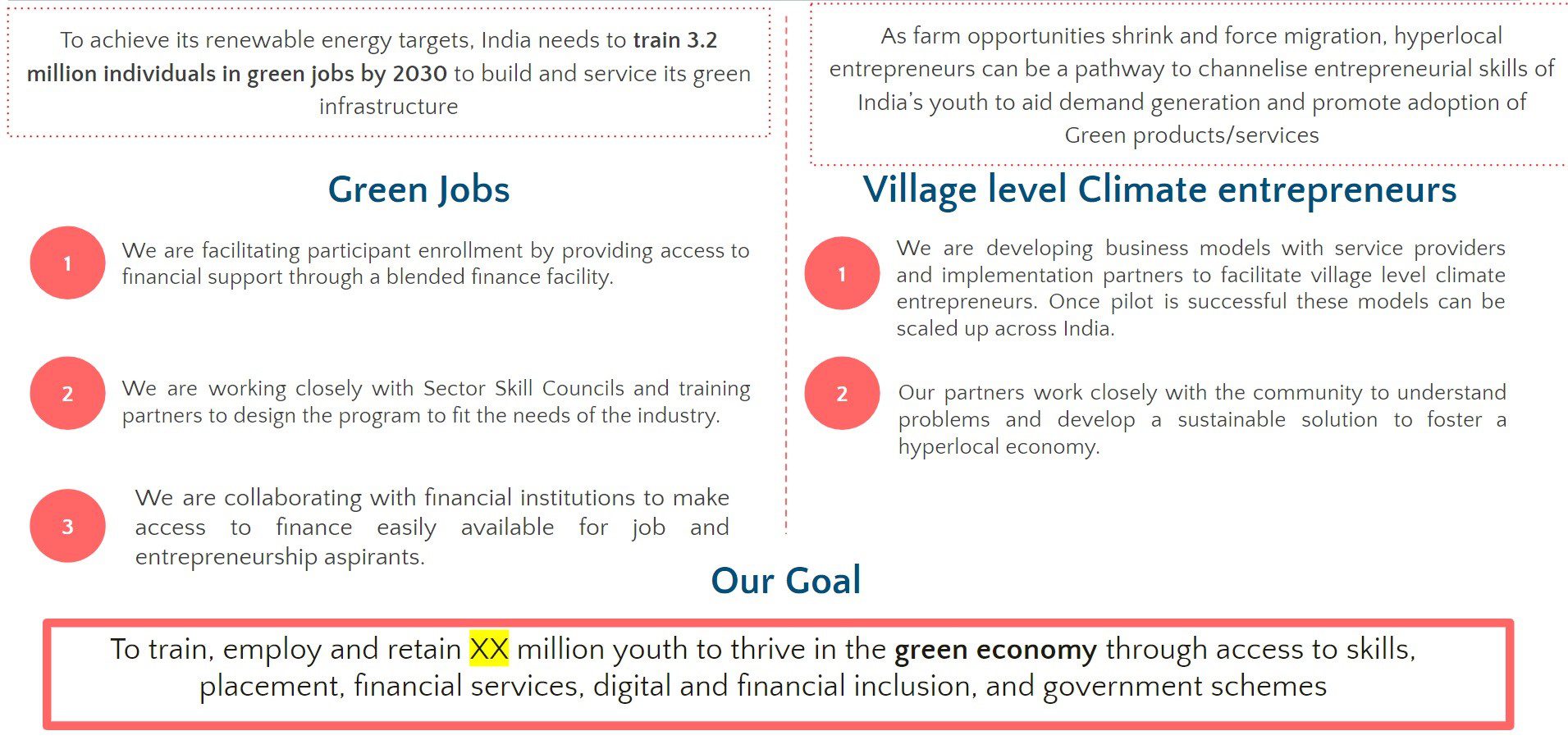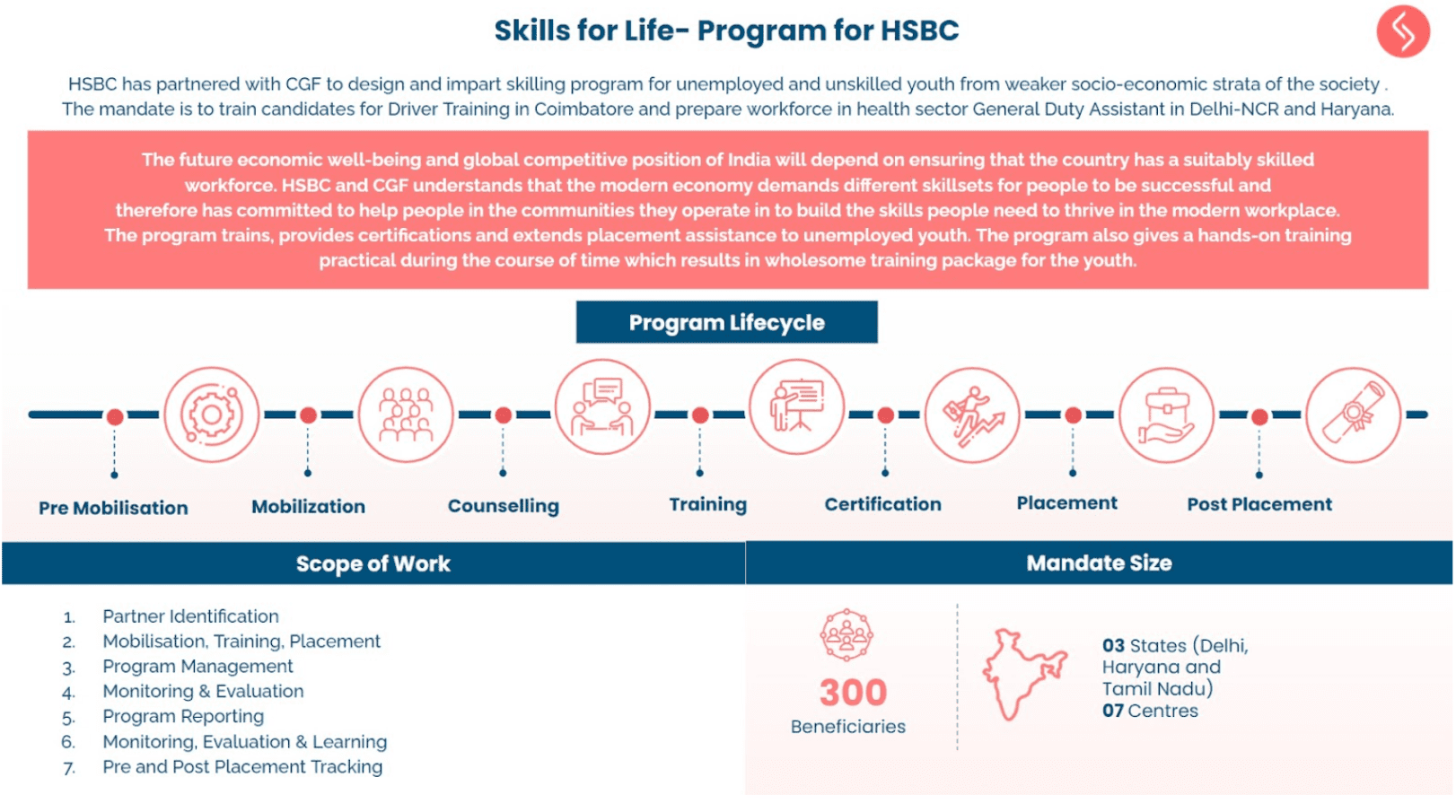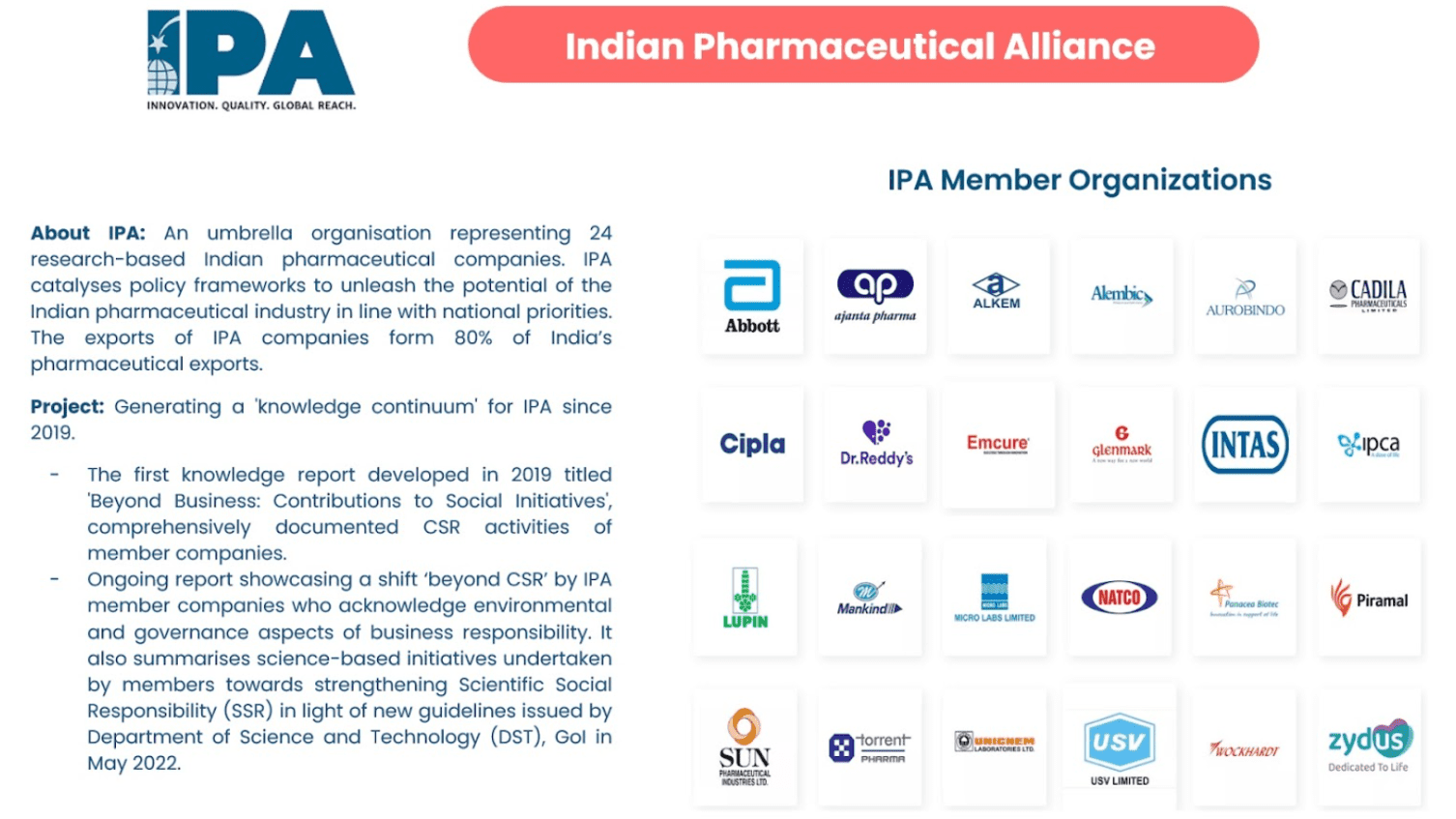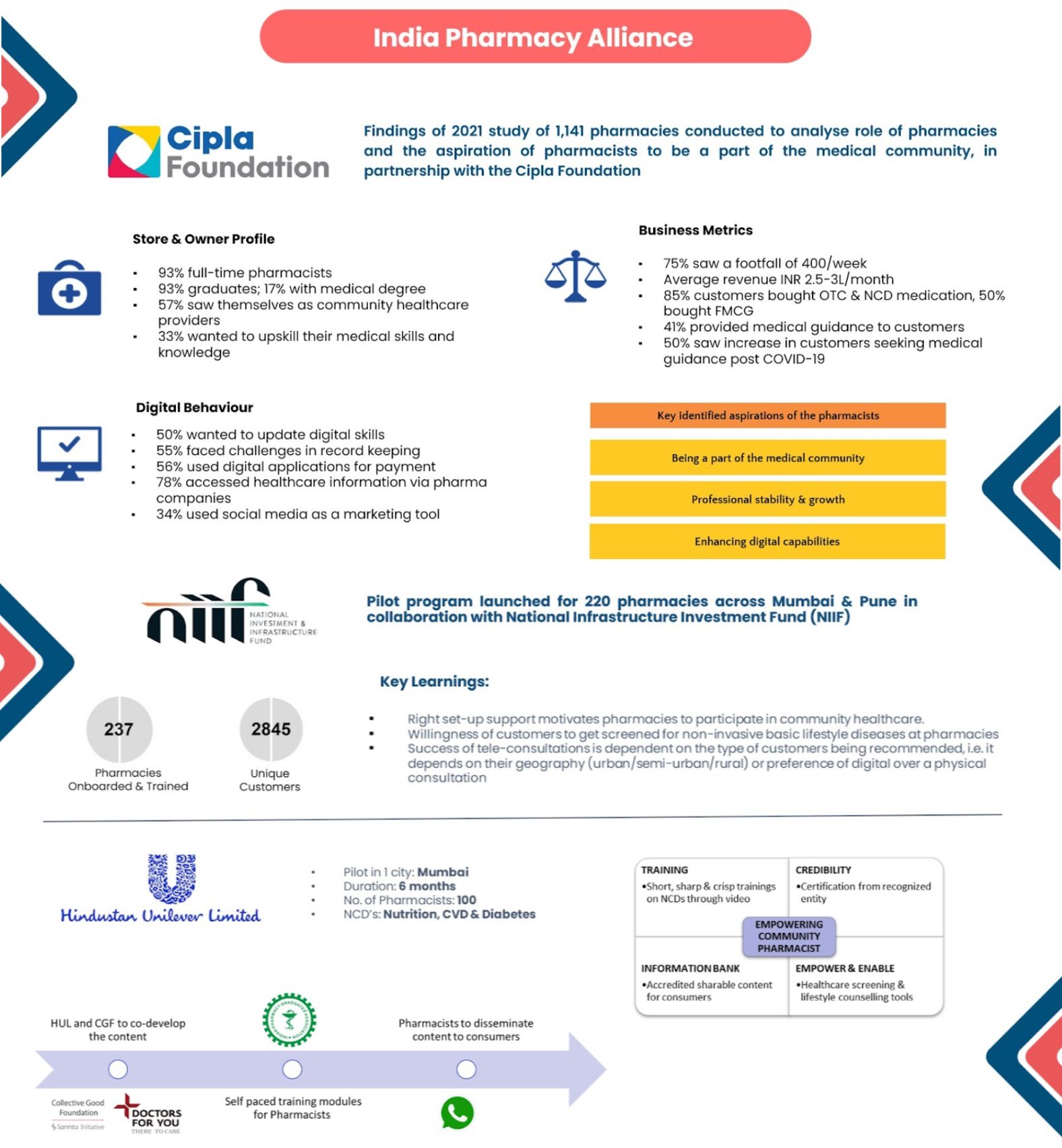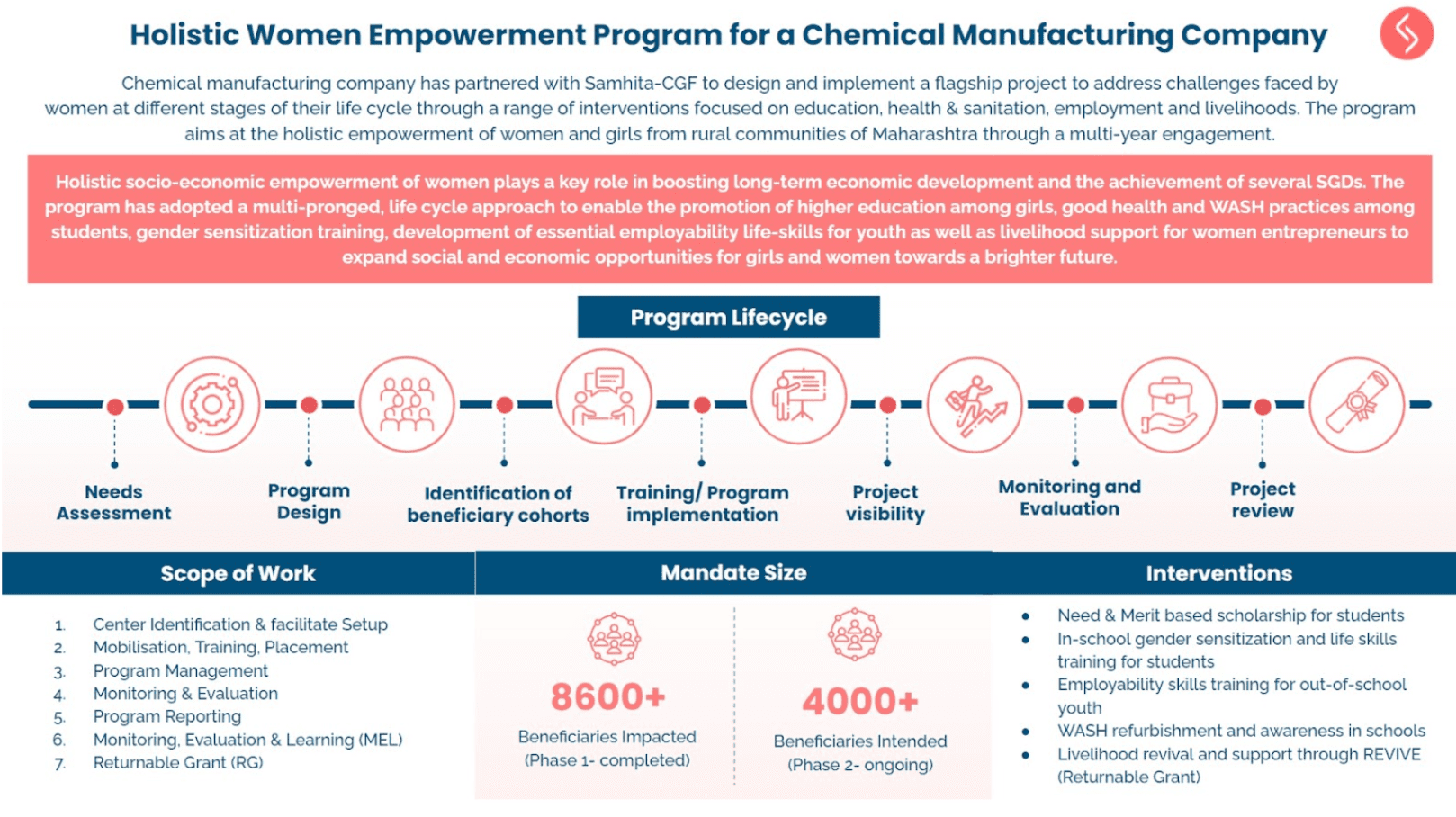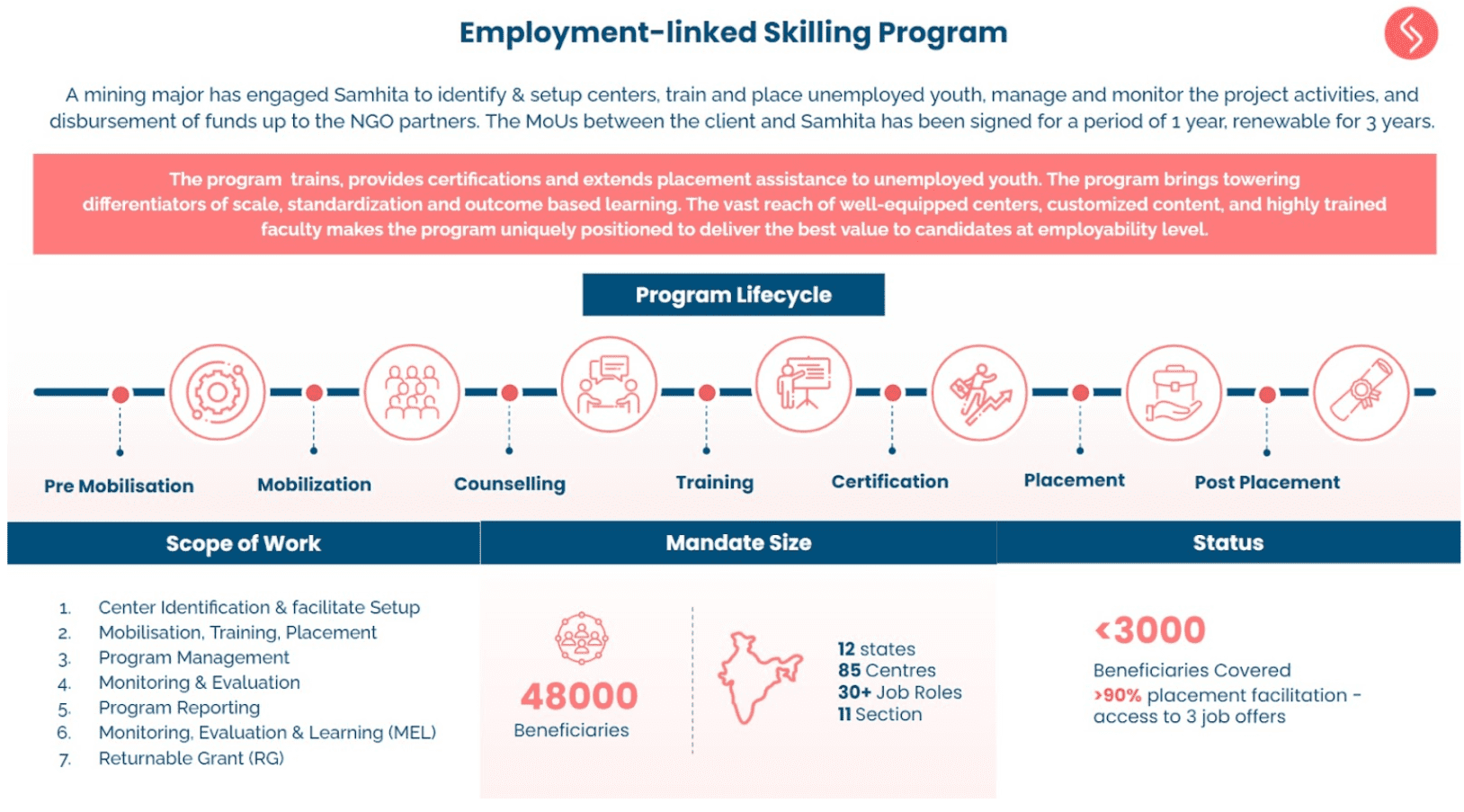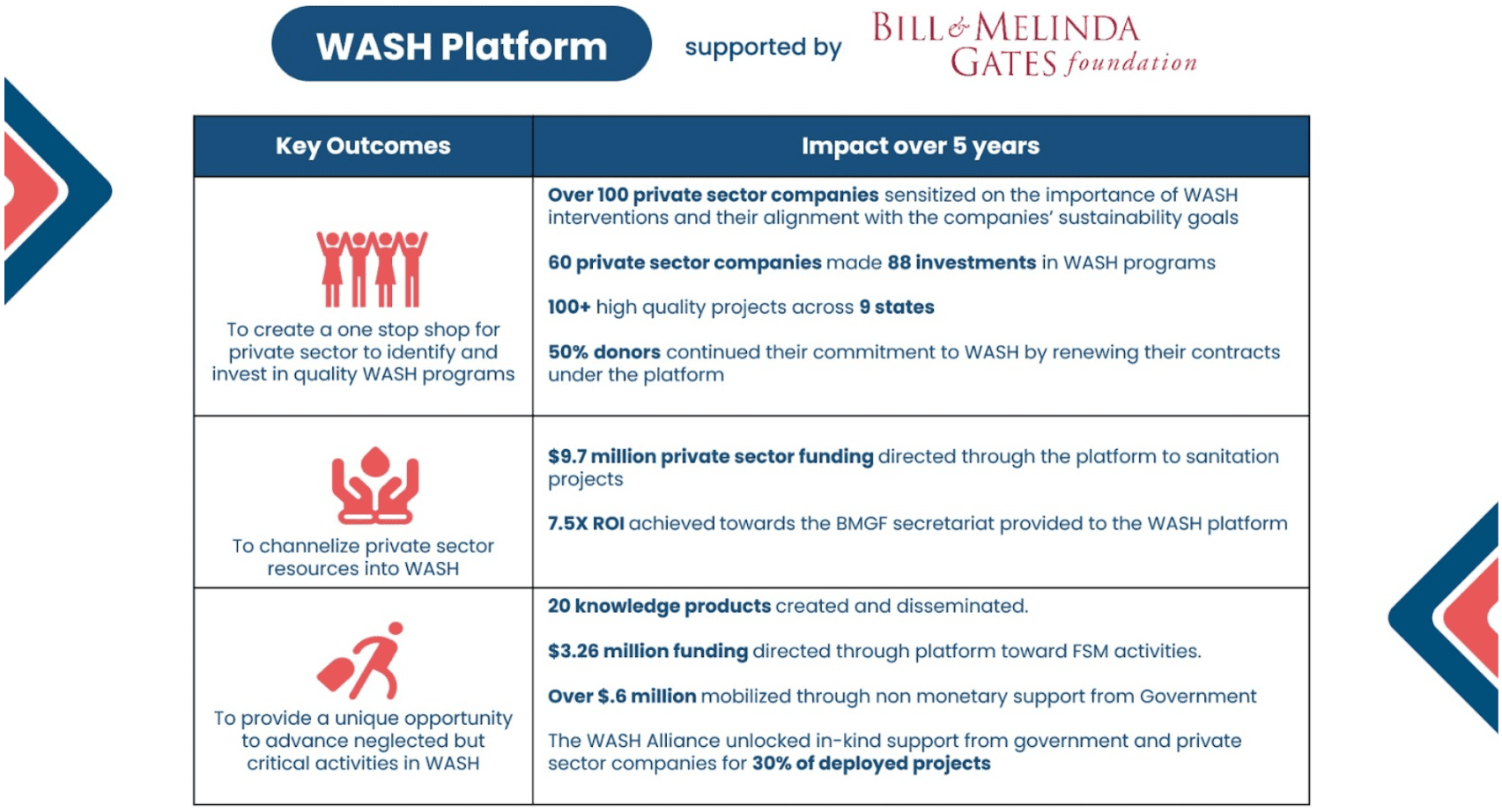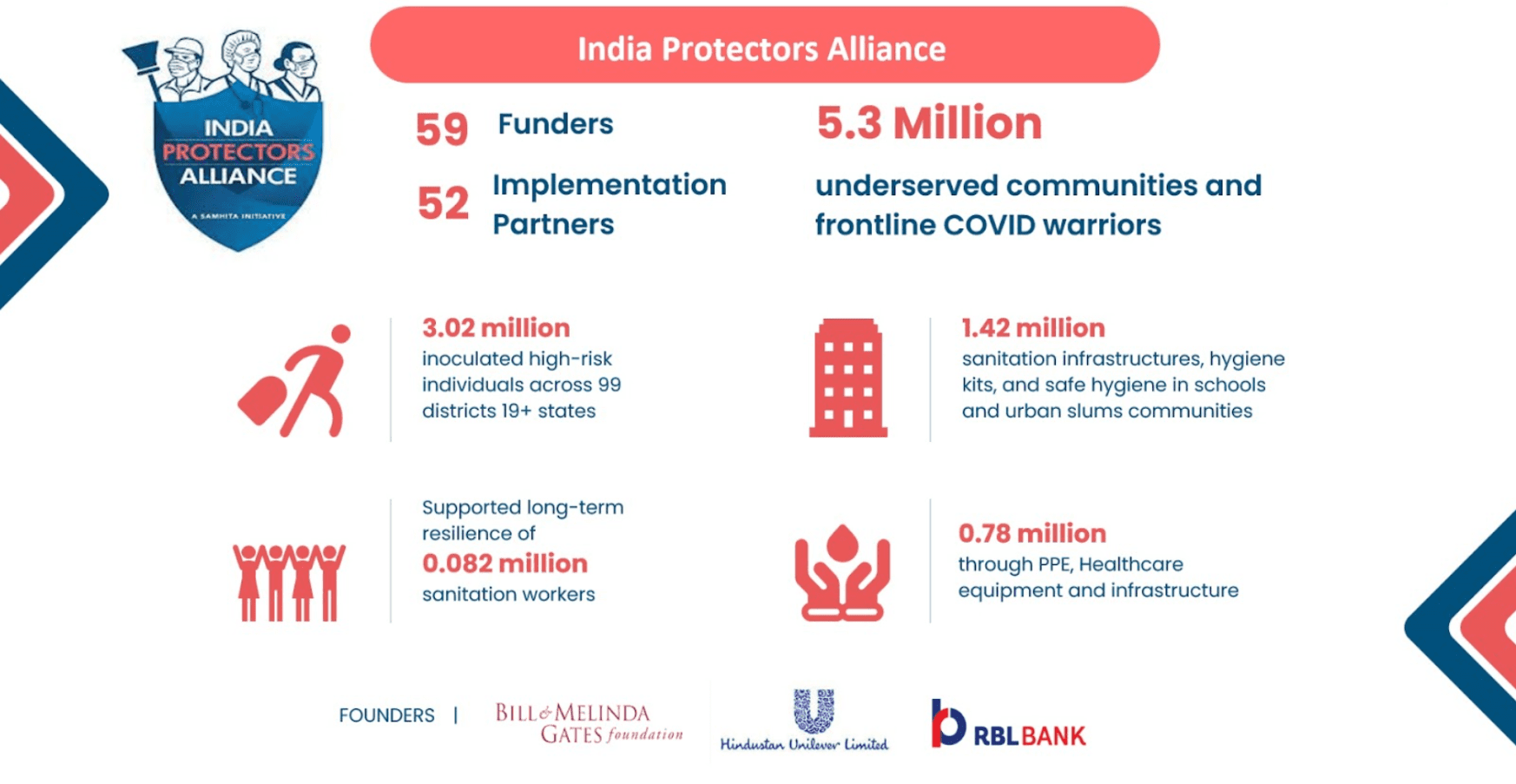In India, the need for skilling initiatives is paramount, as they hold the key to equipping individuals with the essential skills required to thrive in a rapidly changing job landscape. This blog delves into the challenges faced by Skilling programs that hinder the program effectiveness. It also highlights Samhita-CGF’s innovative approach to tackle these obstacles, emphasising on the significance of skill development in driving individual success and broader economic development in the face of rapid change.
__________________________________________________________________________________
India’s demographic dividend, characterised by a youthful population, could potentially be a significant driver of economic growth. However, to harness this effectively, India needs a skilled and job-ready workforce. Unfortunately, India’s current skilling ecosystem grapples with a multitude of challenges that hinder its capacity to prepare individuals for the demands of the modern job market. In this context, let’s delve into the challenges confronting India’s current skilling ecosystem and explore potential solutions to address them.

Challenges with India’s Current Skilling Ecosystem
1. Limited access to skilling programs
A significant stumbling block in India’s skilling journey is the inadequate access to programs. Geographical barriers, lack of infrastructure, and financial constraints often stand in the way. This exclusion hampers social mobility and perpetuates income inequality. Empowering marginalised communities with readily available and affordable skilling initiatives is imperative.
2. Need for Greater Accountability for Training Institutes or Participants
One of the most pressing concerns within India’s skilling sector revolves around accountability. Numerous training institutes currently fail to deliver high-quality capacity-building opportunities, resulting in a lack of motivation among participants. To address this issue effectively, there is a critical need to establish stringent quality standards and implement robust monitoring mechanisms.
3. Lack of Placement Focus and Post-Placement Support
Insufficient emphasis on placement support and post-placement assistance within current skilling initiatives leaves a critical gap in the journey towards gainful employment. To address this deficiency, skilling programs must pivot their attention towards providing essential resources like financial aid, mentorship, and networking opportunities for facilitating a seamless transition into the workforce.
A holistic approach for empowering the workforce
India’s diverse workforce necessitates a multifaceted approach, encompassing financial aid and technology. These comprehensive strategies enable individuals to excel in an evolving work environment and navigate the challenges of the modern world, fostering sustainable progress.
- One Individual, Multiple Interventions: It is crucial to provide a range of tailored interventions aligned with different stages of an individual’s career journey. These encompass skill-focused training, financial accessibility, and workplace support.
- Access to Finance for Skilling: Overcoming financial barriers necessitates a gradual approach to financial assistance, encompassing initiatives like returnable grants and loans with credit guarantees. This empowers individuals to invest in skill development without financial constraints.
- Create Public Goods for the Good of Everyone: Emphasising the creation of public goods that benefit not only individuals but also the broader skill development ecosystem is essential. Innovations such as pre-credit assessments boost confidence among ecosystem participants, supporting first-time borrowers.
- Skilling for Sustained Labor Force Participation: Emphasising the significance of ongoing skill enhancement, it is essential to provide comprehensive, long-term training programs that equip individuals not only for career transitions but also for rapid advancements in their professional journeys.
- Technology to Accelerate and Sustain Impact: Harnessing technology plays a pivotal role in expanding the reach and sustainability of these efforts. Advanced tracking systems facilitate progress monitoring, streamline onboarding, and provide ongoing support to workers throughout their career lifecycles.
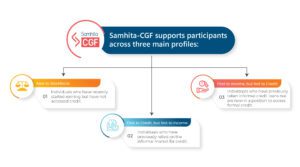
Our skilling initiatives have made a significant impact, training over 52,000 individuals across 16 states through a network of 70+ centres, with a commendable 70% placement rate.
Skills for Life-Program
Acknowledging that India’s economic prosperity and global competitiveness relied on a skilled workforce, HSBC partnered with Samhita-CGF to initiate the Skills for Life Program. This dynamic initiative was designed to uplift unemployed and underskilled youth from disadvantaged socio-economic backgrounds. The program addressed the specific needs of these individuals by providing training opportunities for aspiring drivers while also equipping them with necessary skills to excel as General Duty Assistants within the health sector.
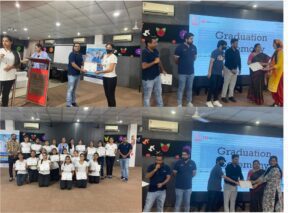
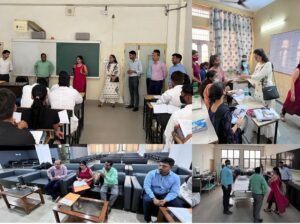
Covering a wide spectrum of 330 participants across three states – Delhi, Haryana, and Tamil Nadu – across 7 dedicated centres, this program served as a holistic training solution for young individuals, nurturing both their personal and professional development. Beyond the in-depth training, participants also received certification and benefited from the job placement support, enriching the education of unemployed youth with invaluable practical expertise.
By empowering individuals across various profiles, providing access to finance, and leveraging technology, Samhita-CGF is making a significant impact in bridging the gap between education and employment, ultimately contributing to India’s economic growth and development.
This article was editorialised by Aakriti Singh and Ayushi Bhatnagar





















